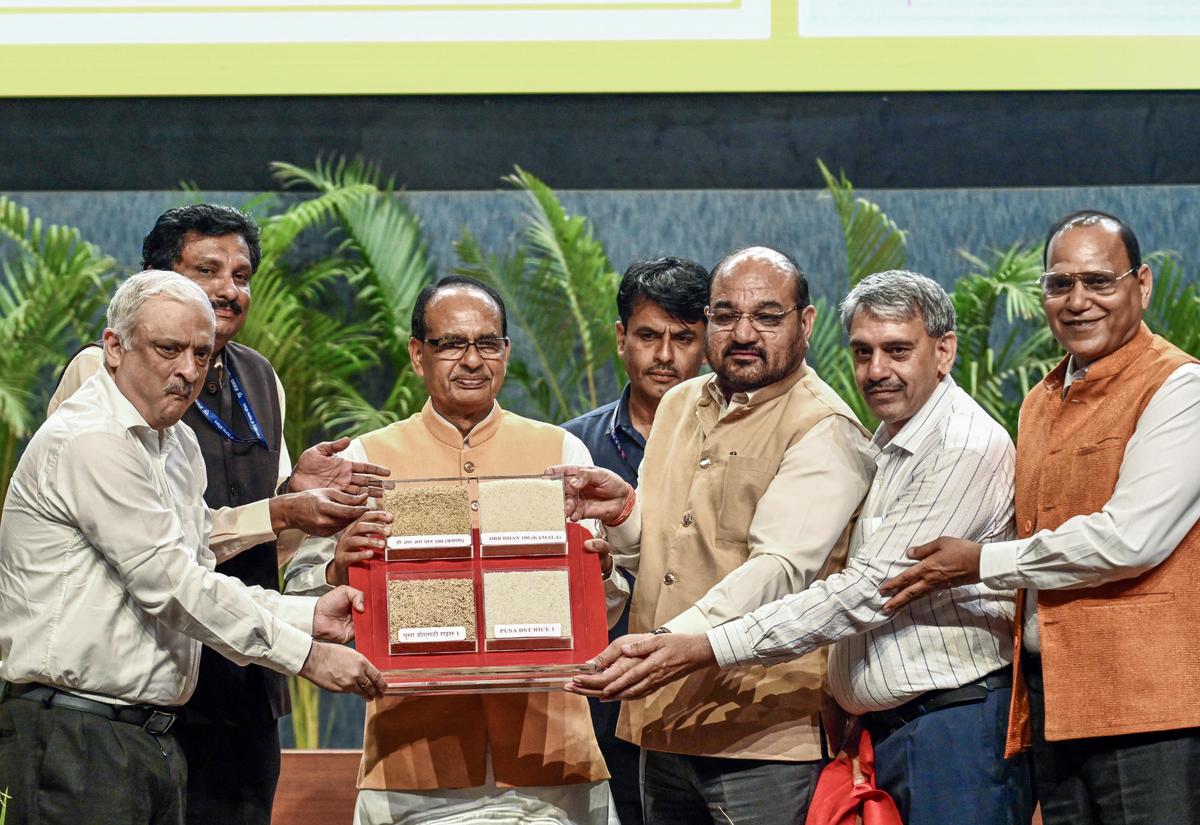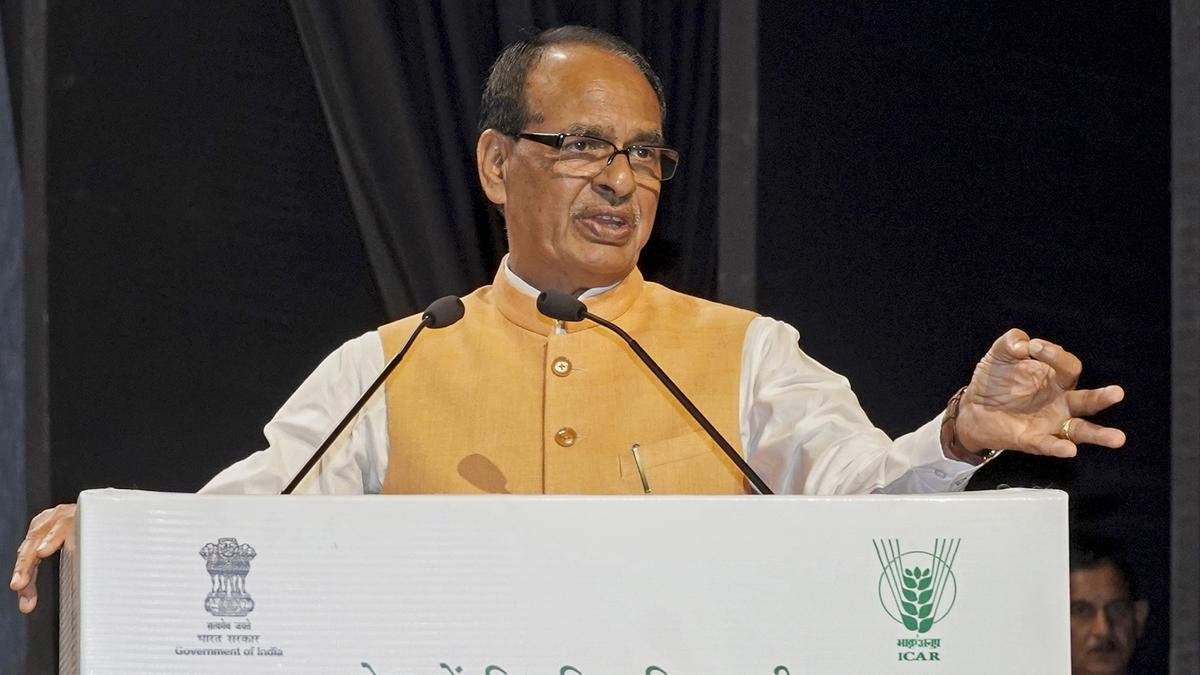
Union Minister of Agriculture and Farmers Welfare Shivraj Singh Chouhan speaks during the release event of two genome-edited rice varieties developed in India, in New Delhi on May 4, 2025.
| Photo Credit: PIB via PTI
Union Agriculture Minister Shivraj Singh Chouhan, on Sunday (May 4, 2025), announced the development of two genome-edited rice varieties and said the technological advancement would lead to a second green revolution in the country.
The new varieties would be made available to farmers within four to five years, he said. “After the laboratory cultivation, breeder seeds will be developed, and after multiplying breeder seeds, certified seeds will be given to farmers. The process generally takes four to five years. We are trying to reduce this time,” he said, speaking to reporters after an event at the Indian Council of Agricultural Research (ICAR) to felicitate the scientists involved in the development of the new seeds.

Union Minister of Agriculture and Farmers Welfare Shivraj Singh Chouhan launches two genome-edited varieties of rice by ICAR, at Bharat Ratna C. Subramaniam Auditorium, NASC Complex in New Delhi on May 4, 2025.
| Photo Credit:
ANI
He said the country’s vision for a developed nation was being realised, and farmers were moving towards prosperity. “Today’s achievement will be written in golden letters. During the Azadi Ka Amrit Mahotsav, Prime Minister Narendra Modi had called upon farmers to adopt modern techniques to overcome agricultural challenges. Inspired by his words, ICAR scientists have made exceptional achievements in the field of agriculture with the creation of these new varieties,” he said and added that the development of these new crops would not only enhance production but also yield positive results in environmental terms.
“It will save irrigation water and reduce greenhouse gas emissions, thereby lowering environmental pressure. This is a classic example of getting both benefits – increased production and environmental conservation,” the Union Agriculture Minister said. He told the reporters that the innovative approach would mark the beginning of the second green revolution.
Mr. Chouhan added that the coming years would see the need for ensuring food security, increasing nutritious production, and providing food for both India and the world, while making India the food basket of the world.
ICAR Director-General M.L. Jat said demand-driven research should be promoted, adding that there was a need to gather feedback from farmers about their specific requirements. “This approach will ensure that research outcomes are tailored to meet the needs of farmers and effectively reach them with the right solutions,” he said.
About 13 scientists, including Vishwanathan C, Gopal Krishnan S, Santosh Kumar, Shivani Nagar, Archana Vats, Satyendra Kumar Mangruthia, R.M. Sundaram, R. Abdul Fiyaz and C.N. Neerja, were honoured for their contribution to the development of the rice varieties.
“These new varieties were developed using genome-editing technology based on CRISPR-Cas, which makes precise changes in the organism’s genetic material without adding foreign DNA. Genome editing of SDN 1 and SDN 2 types of genes has been approved under India’s biosafety regulations for general crops.
In 2018, ICAR initiated genome-editing research to improve two major rice varieties – Samba Mahsuri and MTU 1010 – under the National Agricultural Science Fund. The outcome of this research is the two advanced varieties that offer the following benefits such as 19% increase in yield, 20% reduction in greenhouse gas emissions, saving of 7,500 million cubic meters of irrigation water and improved tolerance to drought, salinity, and climate stresses,” the ICAR said in a statement.
Published – May 04, 2025 09:04 pm IST
Anurag Dhole is a seasoned journalist and content writer with a passion for delivering timely, accurate, and engaging stories. With over 8 years of experience in digital media, she covers a wide range of topics—from breaking news and politics to business insights and cultural trends. Jane's writing style blends clarity with depth, aiming to inform and inspire readers in a fast-paced media landscape. When she’s not chasing stories, she’s likely reading investigative features or exploring local cafés for her next writing spot.




